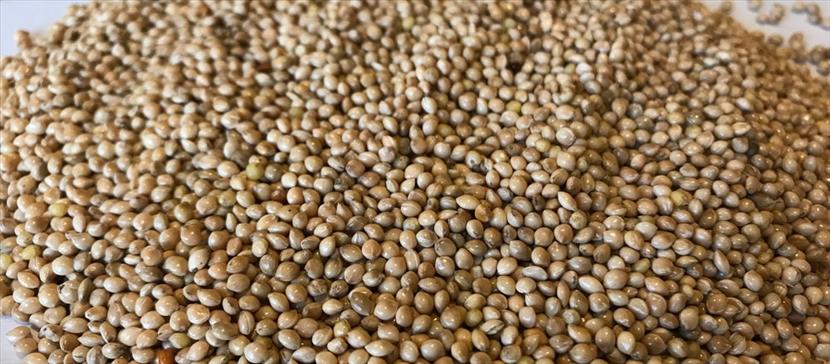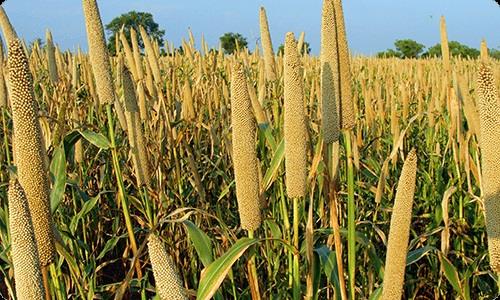|
|

|
|

| Article / Health / General ( Health ) | Post Comments |
Millet Seeds and Gluten-Free Diet in the Future |
|
| By : Singaravel Suresh , No.69,3rd Cross Street, Pasupon Nagar Moulakulam, Pondicherry 605010, Puducherry 27.10.2022 Phone:09363536722 Mail Now | |
| No.69,3rd Cross Street, Pasupon Nagar Moulakulam, Pondicherry 605010 | |
 Millet seeds are one of the most important staple grains grown in Africa and Southeast Asia. These grains are high in nutrients such as proteins, vitamins, minerals, and dietary fibers, and they provide a variety of health benefits. These seeds are more advantageous for celiac disease sufferers since they contain ant nutrient components. Millet seeds are one of the most important staple grains grown in Africa and Southeast Asia. These grains are high in nutrients such as proteins, vitamins, minerals, and dietary fibers, and they provide a variety of health benefits. These seeds are more advantageous for celiac disease sufferers since they contain ant nutrient components.The epidemic of Covid-19 has altered practically every area of our lives, including our eating patterns. Most people began experimenting with various diets to stay fit and healthy, or they gave high-quality plant-based eating a try. With such popular health diets on the rise, there has been a boom in the worldwide millet seeds market. Millet, the world's oldest staple grain, is pushing many health-conscious fans to switch to weight reduction and good diet trends. Because these grains are high in proteins, minerals, vitamins, fiber, and magnesium, they operate as a tiny powerhouse that also gives many other health benefits. What are Millet Seeds and Why Do We Need Them? As previously said, millet seeds are one of many staple grains grown around the world, particularly in Africa and Southeast Asia. It is an ancient grain that is used for human consumption as well as for feeding cattle and birds. There are many different varieties grown around the world and the most common is pearl millet. Millet seeds have several advantages over other crops, including the ability to thrive in harsh environments and less fertile soil.  Millet seeds have numerous health benefits, some of which are listed here. Control blood glucose levels Millets are higher in nutrients, gluten-free, and have a lower glycemic index than wheat and maize. Furthermore, the presence of dietary fibers, protein, and amino acids aids in blood sugar stability, particularly in diabetics. Lower your cholesterol Millet has soluble fibers that easily trap fats and aid in cholesterol reduction. Adiponectin, an anti-inflammatory hormone, promotes heart function and promotes fatty acid oxidation. Enhance your intestinal health Millets, as previously stated, are high in dietary fibers, both soluble and insoluble. The prebiotic, or insoluble fiber, supports the growth of beneficial bacteria in the digestive tract. This type of fiber also adds bulk to stools, thus preventing the chances of colon cancer. Ideal for gluten-free eating If you have celiac disease or prefer a gluten-free diet, millet seeds are an option. Gluten is a type of protein that occurs naturally in wheat, barley, rye, and other grains except for millets. Gluten causes detrimental digestive symptoms such as nutrition malabsorption and diarrhea, hence celiac patients must switch to certified gluten-free millets. Is a Gluten-Free Diet Advisable for Everyone? Gluten is not a bad protein for most individuals, and experts advise people not to avoid gluten just to be trendy. If you're gluten-sensitive, you should avoid it, but if you're not, you should be aware of the disadvantages of being gluten-free. • Constipation that occurs frequently • An abrupt surge in appetite that causes you to feel hungry • Nausea, cramping in the legs, headaches, fatigue, and other withdrawal symptoms • Increases the likelihood of developing type 2 diabetes • Weight gain • Important vitamins, minerals, and fiber are deficient. Are Millet Seeds Good For Everyone? Despite the grain's numerous health benefits, millet seeds contain anti-nutrient chemicals that inhibit your body's absorption of other nutrients, perhaps leading to shortages. Millets contain phytic acid, a chemical that interferes with calcium, iron, zinc, potassium, and magnesium levels. Furthermore, goitrogenic polyphenols have the potential to affect thyroid function and promote goiter. To reduce the anti-nutrient content of millet, soak the seeds overnight at room temperature and rinse them before eating. In conclusion Millet seeds are high in important nutrients and help in weight loss. People with celiac disease are often recommended to avoid gluten and increase their millet seed intake. In order to maintain nutrient levels in your body, experts recommend replacing millet seeds with a suitable replacement grain. |
|